
Outline > Organization
- Organization
- Greetings
- Project management ・ Evaluation system
- Partnership
Greetings
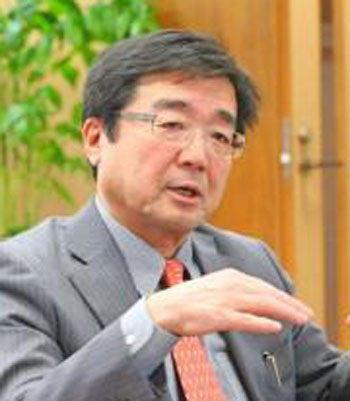
Niigata University, President
Sugata TAKAHASHI
Read text
Niigata University is a university on the Sea of Japan, an important part of Pacific Rim. Having a broad view of things, it aims to contribute to the peace and development of mankind through education, research and contribution to society. Therefore, following the Pacific Ocean side line, we are envisioning activities that will help to develop the Japan Sea side line. As a global strategy, we at first concentrate on target areas such as Northeast Asia, Russia, Mongolia, as well as Southeast Asia, accumulate knowledge for making of the Japan Sea Region a part of Pacific Rim and build a network between governments, people and universities. These are the aims set up in order to implement the plans.
In such circumstances, the Japan Society for the Promotion of Science started recruiting universities who would like to take part in the “Re-Inventing Japan Project” (support of international exchanges at the university level in Russia and India) and it was a great pleasure that the project of School of Medicine, Faculty of Medicine named “Creating of an international project, aimed at the education of medical staff, which will contribute to the economic and industrial development of Japan and Russia 2014-2019” was chosen. Niigata University's history of Russian medical exchanges has continued for more than 20 years, mainly focusing on undergraduate student exchanges, but including research and clinical exchanges of young doctors. I understand that this reinforcement project concept was chosen due to achievements we have already had and the project was adopted because of possible favorable implementation results.
Japan-Russia medical exchanges continued without failures until now not only due to efforts of School of Medicine, Faculty of Medicine, but also due to the support of various people at many levels and I would like to express my deep appreciation to everyone. I hope that basing on already endorsed projects of the Faculty of Medicine and the Faculty of Agriculture we will have an opportunity to develop a global strategy which will spread to other university departments.
I appreciate all the efforts and hope for further support and encouragement.
In such circumstances, the Japan Society for the Promotion of Science started recruiting universities who would like to take part in the “Re-Inventing Japan Project” (support of international exchanges at the university level in Russia and India) and it was a great pleasure that the project of School of Medicine, Faculty of Medicine named “Creating of an international project, aimed at the education of medical staff, which will contribute to the economic and industrial development of Japan and Russia 2014-2019” was chosen. Niigata University's history of Russian medical exchanges has continued for more than 20 years, mainly focusing on undergraduate student exchanges, but including research and clinical exchanges of young doctors. I understand that this reinforcement project concept was chosen due to achievements we have already had and the project was adopted because of possible favorable implementation results.
Japan-Russia medical exchanges continued without failures until now not only due to efforts of School of Medicine, Faculty of Medicine, but also due to the support of various people at many levels and I would like to express my deep appreciation to everyone. I hope that basing on already endorsed projects of the Faculty of Medicine and the Faculty of Agriculture we will have an opportunity to develop a global strategy which will spread to other university departments.
I appreciate all the efforts and hope for further support and encouragement.
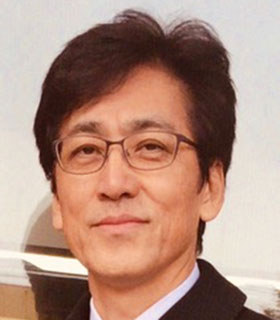
Niigata University, School of Medicine, Dean
Chief of Institute of Medicine and Dentistry, Academic Assembly
Chief of Institute of Medicine and Dentistry, Academic Assembly
Toshiyuki SOMEYA
Read text
The history of exchanges between the Niigata University School of Medicine and Russia has a long history, this story dates back to 1992. It all started with the creation of the Krasnoyarsk Endoscopy Training Center in order to share Japanese technologies with Russian specialists under the request of Japan-Russia Medical Exchange Foundation, established for humanitarian and medical cooperation. Looking at the website of Japan-Russia Medical Exchange Foundation (http://www.jrmef.org/about-jrmef/foundation-history.html), we can understand that the seniors of Niigata University have been deeply involved in the development of this exchange project.
In 1993, the 1st Japan-Russia Medical Symposium was held in Niigata. At that time, an agreement with Krasnoyarsk Medical College was reached, so student exchange began.
Next agreement concerning student exchange was signed with Vladivostok State Medical University (now Pacific State Medical University), Krasnoyarsk State Medical University and Far Eastern State Medical University in 1998. Over 250 medical students, doctors, nurses and graduate students have visited Niigata so far. It is noteworthy that we have continued medical exchanges for more than a quarter of a century without being interrupted except for in 2011 due to the Great East Japan Earthquake. This is a result of enthusiasm of stakeholders who have supported international exchanges.
Based on these achievements, Niigata University School of Medicine with two leaders Tatsuo Ushiki, the former president of Niigata University School of Medicine and Hiroshi Hibino, the head of international exchange committee, devised the concept of "building a framework for developing global medical human resources that will contribute to economic and industrial development of Japan and Russia". It was adopted by Ministry of Education, Culture, Sports, Science and Technology as “Re-Inventing Japan Project” in 2014.
This project, named G - MedEx, consists of "Medical student exchanges" and "Graduate student exchanges". Medical student exchanges include Summer Exchange Program for Medical Students which is bidirectional and Medical Research Training Program for Japanese undergraduate students who spend two month research practice in Russia. We also improve the quality of graduate school education by planning multilayered, comprehensive programs and courses including new formats such as double degree programs. Both types of exchanges have been actively and successfully realized by the staff of G - MedEx control center, so recently we are also promoting activities to share now - how and results of G - MedEx to other faculties of Niigata University.
In 2017, all the achievements of Niigata University were highly appreciated, so joint application with Hokkaido University named "Program of globalization in the field of university education, the creation of the platform for interaction” was adopted. Based on the experience that both universities have gained, it aims at the development of the Japan-Russia consortium in collaboration with local industrial enterprises, active participation in Japan-Russia University Association activities, human resource development that will contribute to the economic development of both countries and creation of an integrated platform for industry-government-academia cooperation
I hope all the people involved in the project will do their best so that our activities will bring further enhancement and development of Japan-Russia medical exchanges and spread the "Niigata model" in the field of international educational exchange.
I am looking forward to your further support and cooperation.
In 1993, the 1st Japan-Russia Medical Symposium was held in Niigata. At that time, an agreement with Krasnoyarsk Medical College was reached, so student exchange began.
Next agreement concerning student exchange was signed with Vladivostok State Medical University (now Pacific State Medical University), Krasnoyarsk State Medical University and Far Eastern State Medical University in 1998. Over 250 medical students, doctors, nurses and graduate students have visited Niigata so far. It is noteworthy that we have continued medical exchanges for more than a quarter of a century without being interrupted except for in 2011 due to the Great East Japan Earthquake. This is a result of enthusiasm of stakeholders who have supported international exchanges.
Based on these achievements, Niigata University School of Medicine with two leaders Tatsuo Ushiki, the former president of Niigata University School of Medicine and Hiroshi Hibino, the head of international exchange committee, devised the concept of "building a framework for developing global medical human resources that will contribute to economic and industrial development of Japan and Russia". It was adopted by Ministry of Education, Culture, Sports, Science and Technology as “Re-Inventing Japan Project” in 2014.
This project, named G - MedEx, consists of "Medical student exchanges" and "Graduate student exchanges". Medical student exchanges include Summer Exchange Program for Medical Students which is bidirectional and Medical Research Training Program for Japanese undergraduate students who spend two month research practice in Russia. We also improve the quality of graduate school education by planning multilayered, comprehensive programs and courses including new formats such as double degree programs. Both types of exchanges have been actively and successfully realized by the staff of G - MedEx control center, so recently we are also promoting activities to share now - how and results of G - MedEx to other faculties of Niigata University.
In 2017, all the achievements of Niigata University were highly appreciated, so joint application with Hokkaido University named "Program of globalization in the field of university education, the creation of the platform for interaction” was adopted. Based on the experience that both universities have gained, it aims at the development of the Japan-Russia consortium in collaboration with local industrial enterprises, active participation in Japan-Russia University Association activities, human resource development that will contribute to the economic development of both countries and creation of an integrated platform for industry-government-academia cooperation
I hope all the people involved in the project will do their best so that our activities will bring further enhancement and development of Japan-Russia medical exchanges and spread the "Niigata model" in the field of international educational exchange.
I am looking forward to your further support and cooperation.
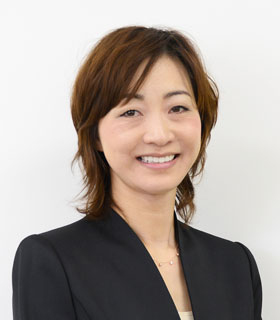
Niigata University, Director of G-MedEx Control Center
Shihoko YAMAKAWA
Read text
Our center has been established as a result of the “Re-inventing Japan Project (support of international exchanges at the university level in (Russia)” adoption.
With the rapid globalization in recent years, society has strongly demanded human resources with international perspective and experience regardless of a field. To foster “global medical leaders” G-MedEx has developed a multilayered program covering a large number of trainees from medical to graduate students, mainly from Krasnoyarsk State Medical University, Far Eastern State Medical University and Pacific State Medical University. So already existed long history of exchanges was deepened.
Usually students have high expectations of studying abroad life and I am worried if they accept the local life, climate, customs etc. Staff working in control center has knowledge of Russia and Russian experience, so we will closely cooperate with partner universities in order to manage the project and support students, trying to make their lives easier.
In addition, we will do our best to organize exchange meetings where students can communicate and share information with each other. We would also like to organize a system that will allow us to create network of personal connections that will help to find future career paths for students. Although G - MedEx is a program specialized in the medical field, we are working on creating an environment where international exchange can become global and can be done boundlessly.
Progress in medicine is a result of human relaionships. I sincerely hope that future healthcare professionals that will play the key role on the global stage will be fostered due to our project and we will do our best to implement it. I would like to ask everyone for understanding and future cooperation.
With the rapid globalization in recent years, society has strongly demanded human resources with international perspective and experience regardless of a field. To foster “global medical leaders” G-MedEx has developed a multilayered program covering a large number of trainees from medical to graduate students, mainly from Krasnoyarsk State Medical University, Far Eastern State Medical University and Pacific State Medical University. So already existed long history of exchanges was deepened.
Usually students have high expectations of studying abroad life and I am worried if they accept the local life, climate, customs etc. Staff working in control center has knowledge of Russia and Russian experience, so we will closely cooperate with partner universities in order to manage the project and support students, trying to make their lives easier.
In addition, we will do our best to organize exchange meetings where students can communicate and share information with each other. We would also like to organize a system that will allow us to create network of personal connections that will help to find future career paths for students. Although G - MedEx is a program specialized in the medical field, we are working on creating an environment where international exchange can become global and can be done boundlessly.
Progress in medicine is a result of human relaionships. I sincerely hope that future healthcare professionals that will play the key role on the global stage will be fostered due to our project and we will do our best to implement it. I would like to ask everyone for understanding and future cooperation.
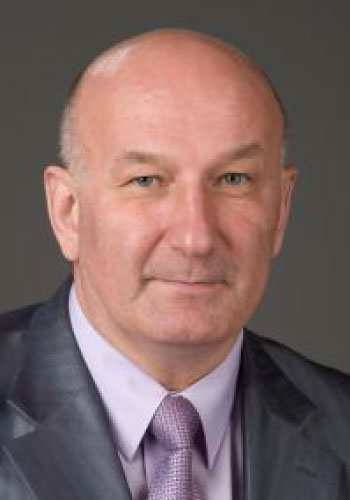
Krasnoyarsk State Medical University, president
Ivan ARTYUKHOV
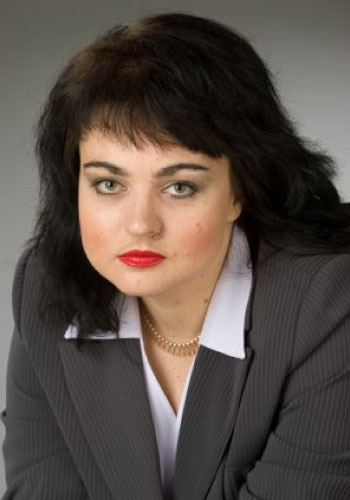
Krasnoyarsk State Medical University, Vice-President
on Innovative Development and International Affairs,
Niigata university, liaison professor
on Innovative Development and International Affairs,
Niigata university, liaison professor
Alla SALMINA
Read text
Krasnoyarsk State Medical University named after Professor V.F. Voino-Yasenetsky is deeply involved in the realization of the Japan-Russia G-MedEx Project since 2014. It appears to be an important step in our collaboration with the Niigata University for the last 25 years. Taking into the consideration the amazing results of the G-MedEx Project implementation, we are very much proud of our long-lasting bilateral relations in the area of Medical Education and Research that greatly influenced our activity.
There is no doubt that our involvement into the G-MedEx project allows further strengthening the medical education curriculum by the application of up-to-date technologies for educating the next generation of young researchers and clinicians that are open for new discoveries and interactions, familiar with the best practices in the organization of medical care and biomedical studies, and ready for further movement toward new era in Basic and Clinical Medicine. The introduction of the G-MedEx Project has already led to many important innovations in the organization of academic exchange, training of young specialists, and establishment of bilateral research projects.
Due to intensive activity of both the parties, the current status of the G-MedEx Project provides the basis for future highest achievements in the Russia-Japan bilateral scientific, medical and educational collaboration. At the same time, we are sure that G-MedEx Project became to be the real mechanism of bilateral cooperation that brought us together not only on the technological basis but in cultural relations as well.
Welcoming the further development of the G-MedEx Project, we assure in our strong intention to make a significant contribution to the cooperation providing the novel educational opportunities and cutting-edge studies of the world-class level aimed to improve the health of our communities.
There is no doubt that our involvement into the G-MedEx project allows further strengthening the medical education curriculum by the application of up-to-date technologies for educating the next generation of young researchers and clinicians that are open for new discoveries and interactions, familiar with the best practices in the organization of medical care and biomedical studies, and ready for further movement toward new era in Basic and Clinical Medicine. The introduction of the G-MedEx Project has already led to many important innovations in the organization of academic exchange, training of young specialists, and establishment of bilateral research projects.
Due to intensive activity of both the parties, the current status of the G-MedEx Project provides the basis for future highest achievements in the Russia-Japan bilateral scientific, medical and educational collaboration. At the same time, we are sure that G-MedEx Project became to be the real mechanism of bilateral cooperation that brought us together not only on the technological basis but in cultural relations as well.
Welcoming the further development of the G-MedEx Project, we assure in our strong intention to make a significant contribution to the cooperation providing the novel educational opportunities and cutting-edge studies of the world-class level aimed to improve the health of our communities.
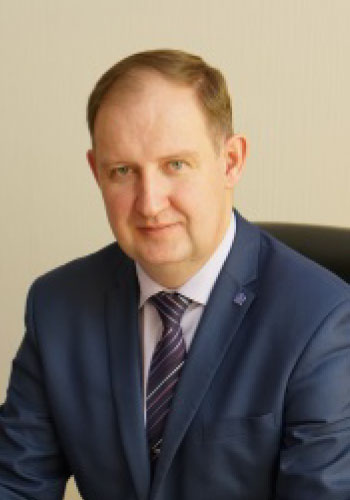
Far Eastern State Medical University, President
Konstantin ZHMERENETSKY
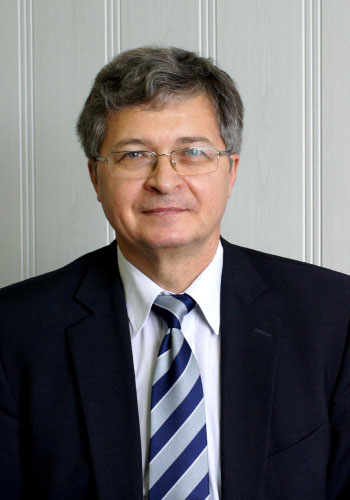
Far Eastern State Medical University, Professor
Niigata university, liaison professor
Niigata university, liaison professor
Nikolai TASHKINOV
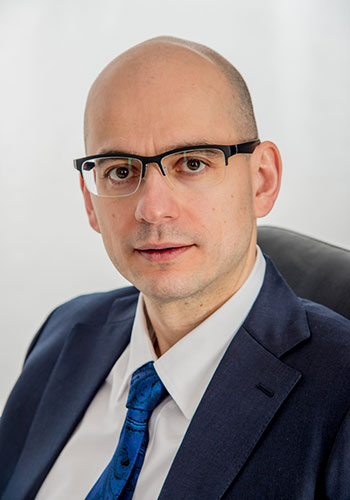
Far Eastern State Medical University, Vice-President
for International Affairs and Public Relations
for International Affairs and Public Relations
Andrey PETRENKO
Read text
On behalf of the Far Eastern State Medical University we would like to express our sincere appreciation to Niigata University for the great efforts made to implement «G-MedEx» Program. Our universities have a long history of mutual trust and cooperation, but due to this program it moved to a new level.
A lot of Russian and Japanese post-graduates and students have received the opportunity to visit Russia and Japan for the last few years and to get acquainted with medicine and culture of our two countries, to participate in scientific research under the guidance of well-known scientists of our medical universities. It is very gratifying to see that our cooperation is expanding and new interesting forms of post-graduate and student exchanges appear.
We are also looking forward to introducing new forms of academic exchange and welcome post-graduates and students of Niigata University School of Medicine to participate in «Final Conference of Young Scientists and Students» which is held in FESMU in autumn, «Sports Festival of students of medical universities of the Far Eastern Federal District» in winter. We would also like to invite the team of Japanese students to take part in «Surgery Contest of the students of medical universities of the Far Eastern Federal District» which is held in spring.
We would like to sincerely congratulate and wish every success to all the organizers and participants of «G-MedEx» Program.
A lot of Russian and Japanese post-graduates and students have received the opportunity to visit Russia and Japan for the last few years and to get acquainted with medicine and culture of our two countries, to participate in scientific research under the guidance of well-known scientists of our medical universities. It is very gratifying to see that our cooperation is expanding and new interesting forms of post-graduate and student exchanges appear.
We are also looking forward to introducing new forms of academic exchange and welcome post-graduates and students of Niigata University School of Medicine to participate in «Final Conference of Young Scientists and Students» which is held in FESMU in autumn, «Sports Festival of students of medical universities of the Far Eastern Federal District» in winter. We would also like to invite the team of Japanese students to take part in «Surgery Contest of the students of medical universities of the Far Eastern Federal District» which is held in spring.
We would like to sincerely congratulate and wish every success to all the organizers and participants of «G-MedEx» Program.
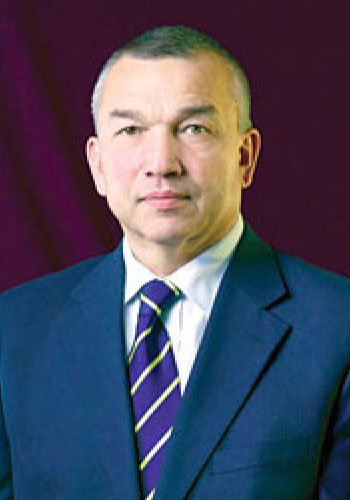
Pacific State Medical University, President
Valentin SHUMATOV
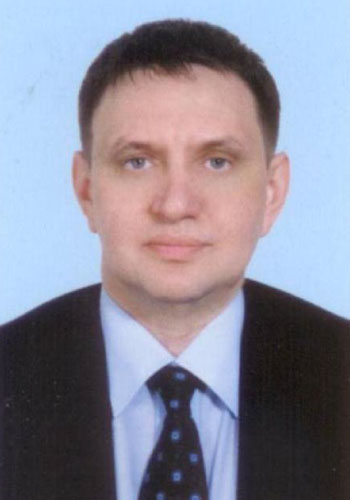
Pacific State Medical University, Vice-president
for international relations, Niigata University, liaison professor
for international relations, Niigata University, liaison professor
Vladimir KUZNETSOV
Read text
Pacific State Medical University is a strategic development center of medical science on the Far East of Russian Federation. Along all the years of collaboration with G-MedEx we created strong relationships in the area of Medical Health Care Education and in the cooperative scientific-research work.
We are very proud that all joint projects with G-MedEx led to successful cooperation in the organization of academic exchange, training of young specialists and innovative scientific-research work.
Due to intensive work of both sides in the medical and educational collaboration we hope for the successful future relationships along with G-MedEx projects. Rewarding collaboration with our Japanese colleagues from G-MedEx helped to implement new features in educational process, highly unique research and meticulous advanced medical practice so as to support the future of medical sciences and practice. We are fortunate that through everyone’s united efforts our relationships have kept growing overall in almost every area.
We admire the stunning progress in academic student exchange projects between PSMU and G-MedEx. Moreover, we look forward to make a significant contribution in joint projects, which will help to strengthen and improve health programs as well as cultural level in both our counties.
We are very proud that all joint projects with G-MedEx led to successful cooperation in the organization of academic exchange, training of young specialists and innovative scientific-research work.
Due to intensive work of both sides in the medical and educational collaboration we hope for the successful future relationships along with G-MedEx projects. Rewarding collaboration with our Japanese colleagues from G-MedEx helped to implement new features in educational process, highly unique research and meticulous advanced medical practice so as to support the future of medical sciences and practice. We are fortunate that through everyone’s united efforts our relationships have kept growing overall in almost every area.
We admire the stunning progress in academic student exchange projects between PSMU and G-MedEx. Moreover, we look forward to make a significant contribution in joint projects, which will help to strengthen and improve health programs as well as cultural level in both our counties.
Project management ・ Evaluation system
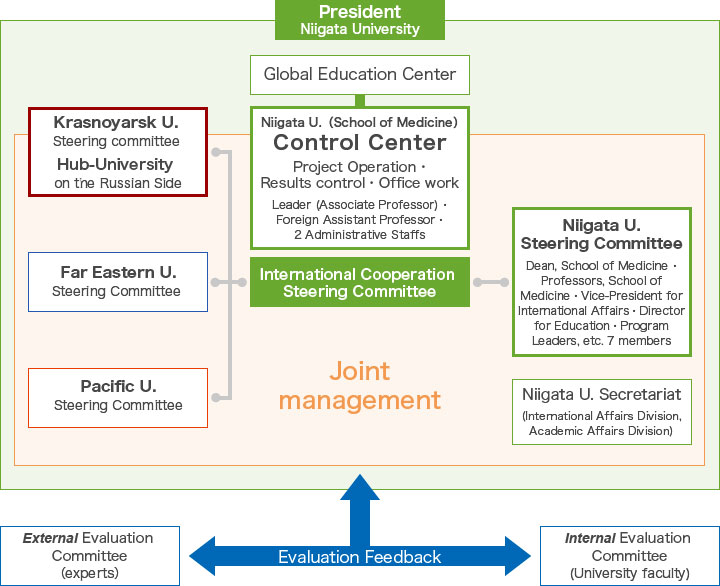
Control Center plays key roles in activating the project & guarantees “the quality of education”
Partnership
Russian Universities
Krasnoyarsk State Medical University
- Ivan ARTYUKHOV, president
- Alla SALMINA, vice-president
- Tatiana KONKOVA
Far Eastern State Medical University
- Konstantin ZHMERENETSKY, president
- Andrey PETRENKO, vice-president
- Nikolai TASHKINOV
- Natalia SOLOMENKO
- Tatyana ILIENKO
- Zoya VAN
Pacific State Medical University
- Valentin SHUMATOV, president
- Vladimir KUZNETSOV, vice-president
- Shakhnoza RAKHIMOVA
- Ksenia DOLZHIKOVA
North-Eastern Federal University, Institute of Medicine
- Nikolai GOGOLEV, director
- Vladlen KUGUNUROV, vice-president
- Sardana GAVRILIEVA
Kazan Federal University, Institute of Fundamental Medicine and Biology
- Andrei KIYASOV, vice-president
- Marat MRASOV
- Guzel BURGANOVA
Kazan State Medical University
- Alexey SOZINOV, president
- Marat MUHAMEDYAROV
Saint Petersburg State University, Medical Faculty
- Sergey ANDRYUSHIN, vice-rector
- Svetlana LAPTEVSKAYA
Moscow State University
- Vsevolod TKACHUK, dean of faculty of fundamental medicine
- Egor BANZELYUK, assistant of vice-president for international affairs
Sechenov First Moscow State Medical University
- Petr GLYBOCHKO, rector
- Andrey SVISTUNOV, first vice-rector
- Tatiana LITVINOVA, vice-rector for academic affairs
- Viktor FOMIN, vice-rector for research and healthcare
- Marina SEKACHEVA, vice-rector for research activities
- Olga SADKOVAYA, head of department for international affairs
- Daria BUGAEVA, chief specialist of department for international affairs
Niigata University
- Sugata TAKAHASHI, president
- Tatsuo USHIKI, executive vice-president
- Toshiyuki SOMEYA, dean of Niigata University School of Medicine
- Hiroshi HIBINO, Head of International Exchange Committee
G-MedEx Control Center (Niigata University School of Medicine)
- Shihoko YAMAKAWA, Head of the Center
- Olga RAZVINA
- Kaoru UEHARA
- Risa ITAGAKI
- Yukiko IKEDA (in charge of the platform construction program)
